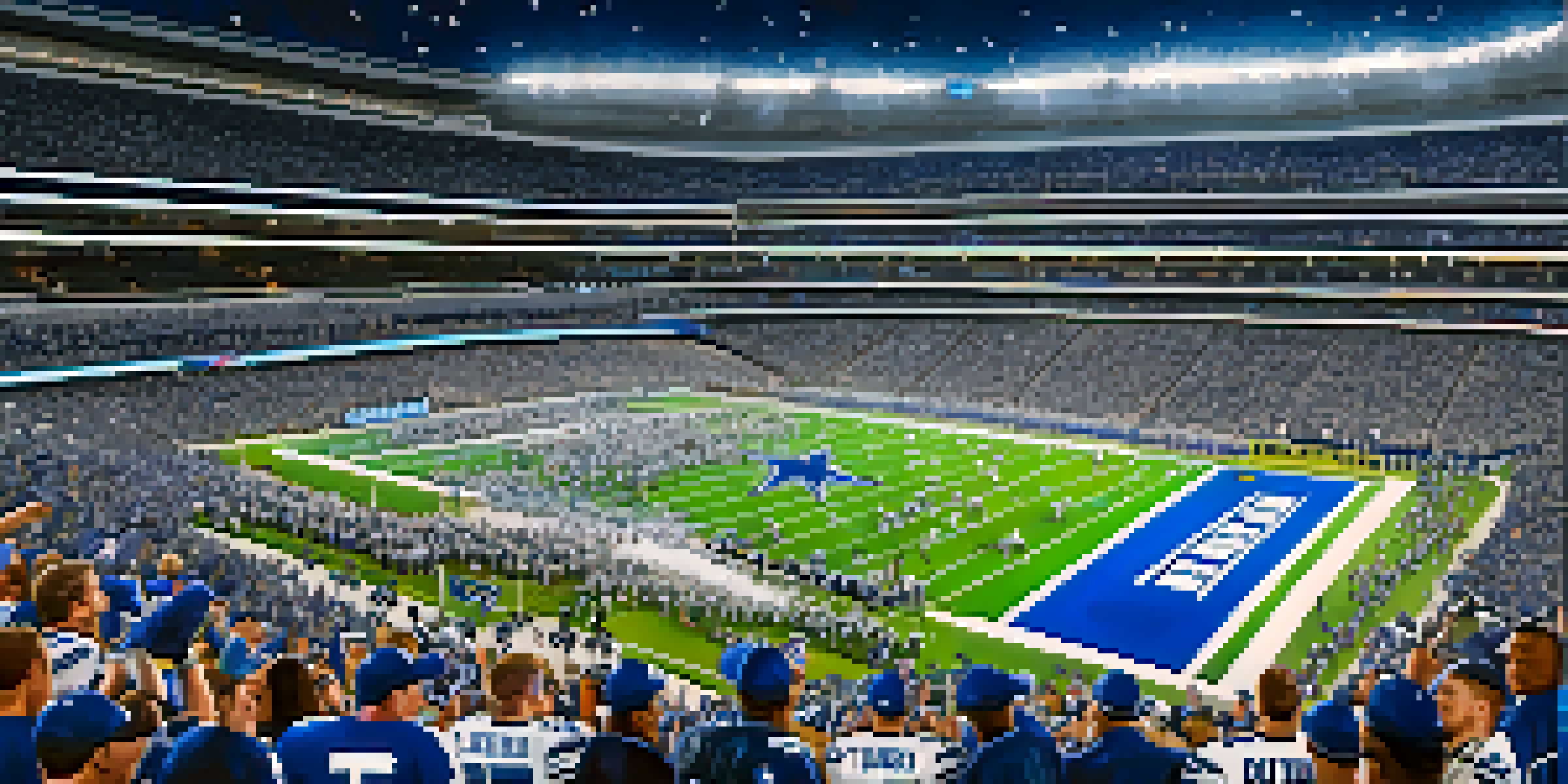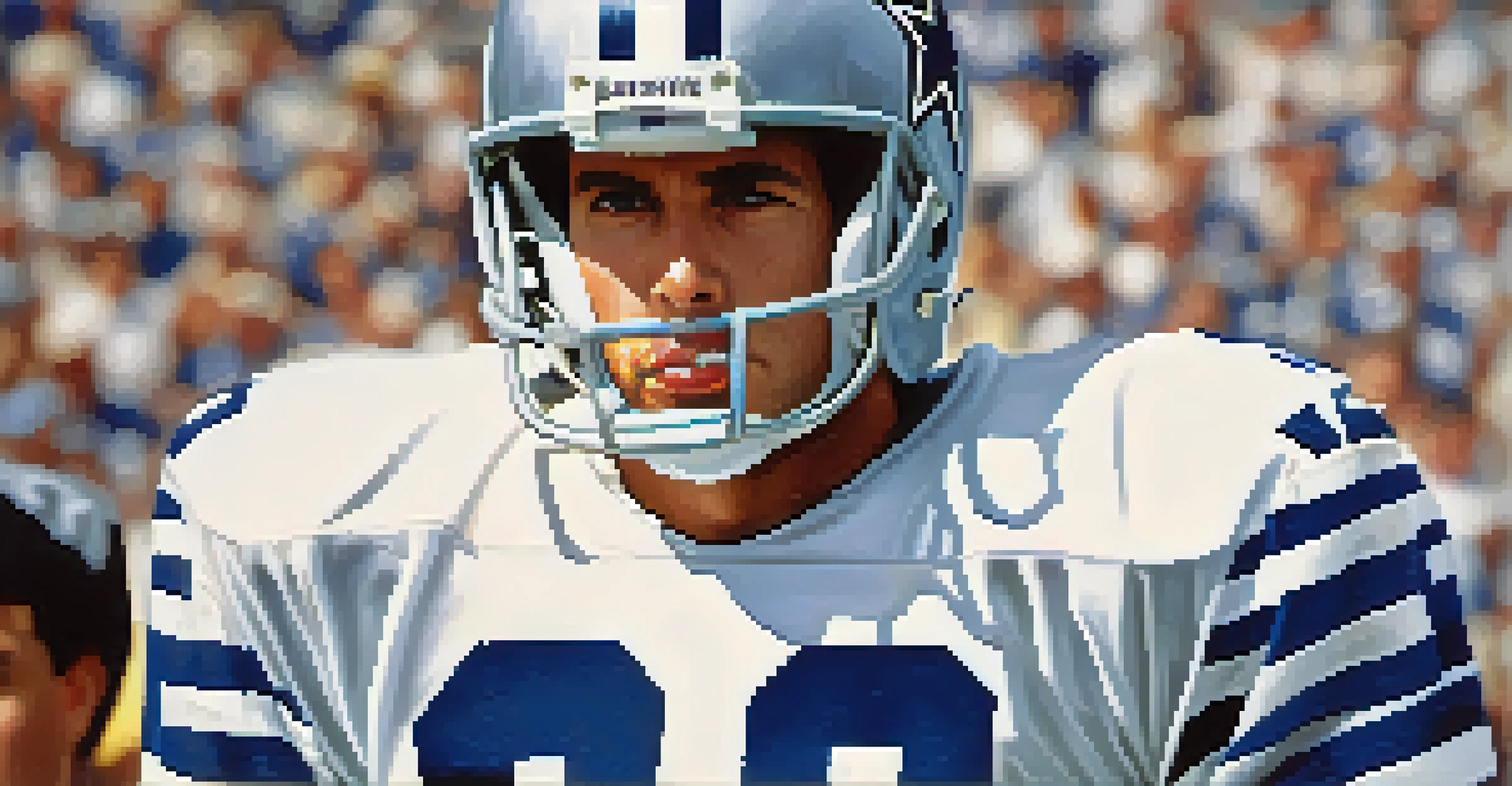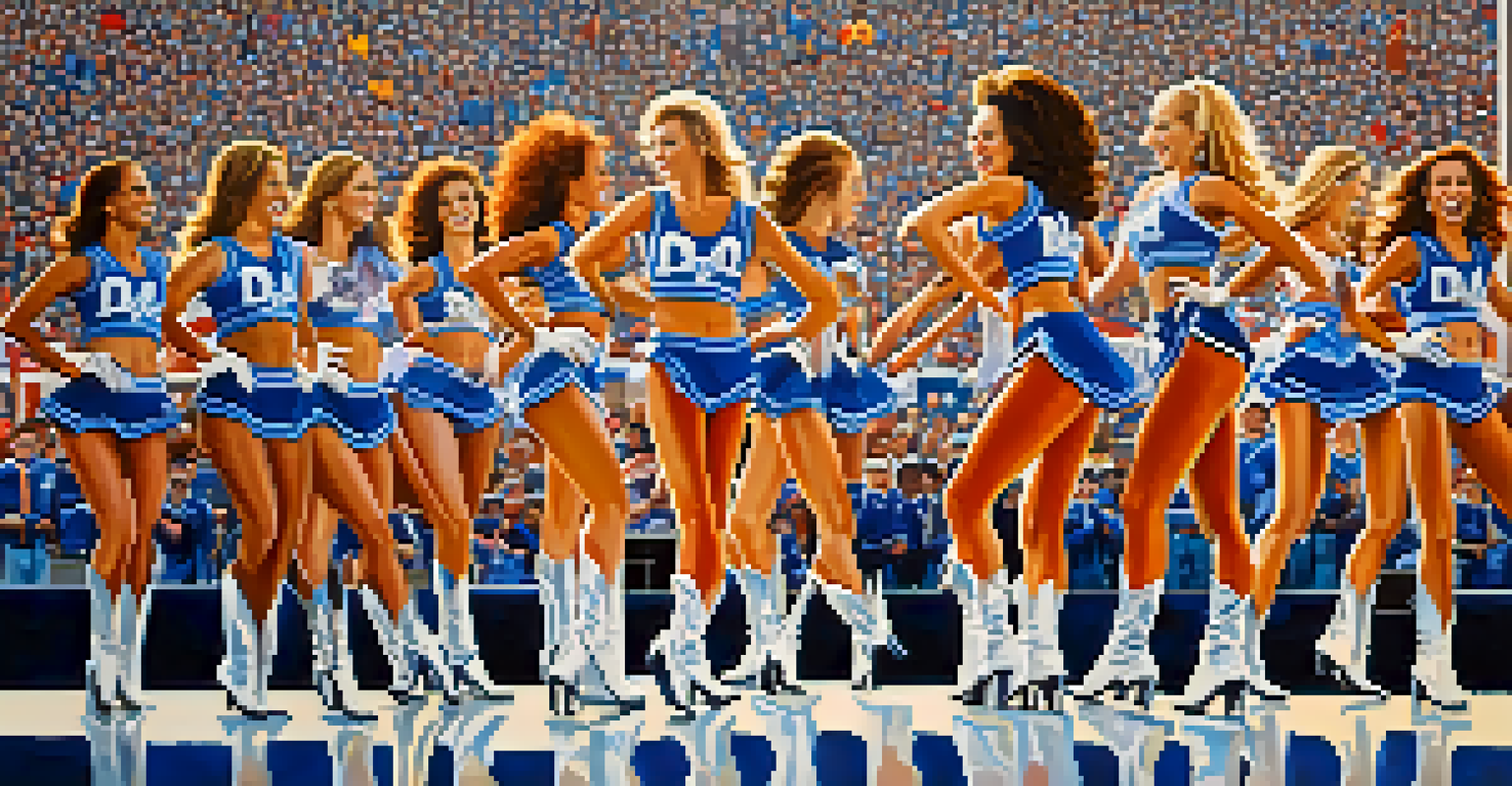Dallas Cowboys: A Deep Dive into America's Team Legacy

The Origins of America's Team: How It All Began
The Dallas Cowboys were established in 1960, quickly making a name for themselves in the NFL. From their inception, the team aimed to create a unique identity that would resonate with fans. The 1966 season marked a turning point as they reached their first playoff game, setting the stage for their rise to fame. It was during these formative years that the Cowboys began to earn their nickname, 'America's Team.'
Success is no accident. It is hard work, perseverance, learning, studying, sacrifice and most of all, love of what you are doing or learning to do.
The term 'America's Team' was popularized in the late 1970s, especially after the release of a documentary. This title reflected not only their growing success on the field but also their ability to capture the hearts of fans across the country. At a time when the NFL was expanding, the Cowboys became a symbol of hope and pride for many. Their distinct blue and silver uniforms, along with their iconic star logo, only added to their appeal.
As the Cowboys continued to develop, their fan base grew exponentially. The combination of a competitive spirit, a talented roster, and charismatic players propelled them into the national spotlight. This early momentum laid the groundwork for a legacy that would endure for decades, making them a staple in American sports culture.
Notable Players Who Shaped the Cowboys' Legacy
The Cowboys' roster has seen many legendary players over the years, each contributing to the team's storied history. Icons like Roger Staubach, known for his incredible leadership and clutch performances, became synonymous with the franchise. His ability to rally the team during critical moments earned him the nickname 'Captain America.' Staubach's impact transcended the field, influencing how future quarterbacks approached the game.

Another key figure in the Cowboys' history is Emmitt Smith, the NFL's all-time leading rusher. Smith's tenacity and determination helped the Cowboys dominate the 1990s, leading them to three Super Bowl victories. His remarkable ability to find the end zone made him a fan favorite and a crucial part of the team's identity. Players like Smith and Staubach not only excelled in their roles but also inspired countless fans and aspiring athletes.
Cowboys: America's Team Legacy
The Dallas Cowboys earned their 'America's Team' nickname through success, strong branding, and a loyal fan base.
The legacy of the Cowboys is also marked by their coaching legends, such as Tom Landry and Jimmy Johnson. Landry's innovative strategies and commitment to excellence helped define the team during its early years, while Johnson's fiery spirit and leadership brought home championships. Together, these players and coaches have solidified the Cowboys' reputation as a powerhouse in professional football.
The Cowboys' Championship Success: A Winning Tradition
When it comes to championships, the Dallas Cowboys are no strangers to success. With five Super Bowl titles under their belt, they have solidified their place in NFL history. Their first Super Bowl win in 1972 against the Miami Dolphins marked the beginning of a winning tradition that fans cherish. This victory not only elevated the team's status but also set the standard for future aspirations.
It's not whether you get knocked down, it's whether you get up.
The 1990s were particularly golden for the Cowboys, as they achieved a remarkable feat by winning three Super Bowls in just four seasons. Under the guidance of Coach Jimmy Johnson and a roster filled with talent, they dominated the decade. This era exemplified teamwork and resilience, showcasing the Cowboys' ability to perform under pressure. Each title added to the mystique of 'America's Team,' further solidifying their legacy.
Even beyond the championships, the Cowboys' consistent playoff appearances and competitive spirit reflect their commitment to winning. The franchise has built a culture of excellence that resonates with fans and players alike. This winning tradition continues to inspire new generations, ensuring that the Cowboys remain a formidable force in the NFL.
The Role of the Cowboys Cheerleaders in Popular Culture
The Dallas Cowboys Cheerleaders are iconic in their own right, playing a significant role in the team's legacy. Established in 1972, this group of talented dancers and performers quickly became a symbol of the franchise. Their captivating performances during games and public appearances have helped to elevate the Cowboys' brand beyond just football. They are often considered a key element in the team's identity.
The cheerleaders have also made their mark on popular culture, featuring in various media and television shows. Their presence has transformed them into ambassadors for the Cowboys, captivating audiences far and wide. The reality show 'Dallas Cowboys Cheerleaders: Making the Team' further popularized their journey, offering a glimpse into the dedication and hard work required to wear the iconic uniform. This blend of sport and entertainment has helped bridge the gap between football and pop culture.
Championships Define Cowboy Culture
With five Super Bowl titles, the Cowboys have established a winning tradition that resonates with fans and players alike.
Moreover, the cheerleaders have taken on philanthropic roles, supporting numerous charitable initiatives. Their involvement in community service reflects the Cowboys' commitment to giving back, enhancing their image as more than just a sports team. The Dallas Cowboys Cheerleaders exemplify how sports can intersect with culture, leaving a lasting impact on fans and society.
Fan Culture: The Heartbeat of the Cowboys' Legacy
The passionate fan base of the Dallas Cowboys is a vital part of the team's legacy. Known as one of the most dedicated groups in sports, Cowboys fans are often referred to as 'Cowboys Nation.' Whether it's wearing their jerseys or gathering for watch parties, their enthusiasm is contagious. This unwavering support has helped the team navigate through both triumphs and challenges over the years.
Cowboys fans are known for their loyalty, often filling stadiums across the country in blue and silver. The team's home games at AT&T Stadium are a spectacle, with fans creating an electric atmosphere that fuels the players. The camaraderie among fans fosters a sense of community, where everyone shares in the highs and lows of the season. This strong bond is what makes being a Cowboys fan such a unique experience.
In addition to their local support, Cowboys fans are found all over the globe. The team's brand extends beyond American borders, creating a diverse and international fan base. This global reach not only showcases the Cowboys' popularity but also highlights the cultural significance of sports in connecting people from different backgrounds. Ultimately, the fans are the lifeblood of the Cowboys, ensuring that their legacy continues to thrive.
Challenges and Resilience: Overcoming Adversity
Like any storied franchise, the Dallas Cowboys have faced their share of challenges. From coaching changes to fluctuating performance, the team has experienced ups and downs throughout its history. Despite these obstacles, the Cowboys have shown remarkable resilience, demonstrating their ability to bounce back and remain competitive. This spirit of perseverance is a testament to the organization's commitment to excellence.
In recent years, the team has encountered both criticism and scrutiny, particularly regarding their playoff performances. However, this adversity has only fueled the determination of players and coaches alike to prove themselves. The desire to reclaim their former glory drives the Cowboys forward, reminding everyone that greatness is often born from struggle. Fans appreciate this tenacity, as it reflects the team's dedication to their craft.
Cheerleaders: Iconic Cultural Role
The Dallas Cowboys Cheerleaders not only enhance the team's brand but also bridge the gap between sports and popular culture.
Moreover, the Cowboys' ability to adapt to changing times is crucial for their continued success. Embracing new strategies, technology, and player development ensures that the team stays relevant in an evolving league. By facing challenges head-on and learning from setbacks, the Cowboys remain a formidable contender in the NFL. This resilience is what keeps their legacy alive and inspires fans to believe in the team's potential.
The Cowboys' Impact on the NFL and Beyond
The Dallas Cowboys have significantly influenced the NFL, shaping the way the game is played and marketed. As one of the league's most recognizable franchises, they have set standards for branding and fan engagement that many teams strive to emulate. Their ability to create a strong identity has paved the way for the commercialization of sports, transforming the Cowboys into a billion-dollar franchise.
Moreover, the Cowboys' success has had a ripple effect on the league, inspiring countless teams to elevate their performance and fan experience. Their legacy of excellence encourages healthy competition among franchises, pushing everyone to strive for greatness. The Cowboys' presence in the NFL has also helped to popularize the sport globally, attracting fans from different cultures and backgrounds.

Beyond the football field, the Cowboys have become a cultural phenomenon, appearing in movies, TV shows, and music. Their impact extends into the realms of fashion and lifestyle, with fans proudly showcasing their Cowboys gear. This cultural significance reinforces the idea that sports can unite people and transcend boundaries, making the Cowboys not just a team, but a symbol of American pride.